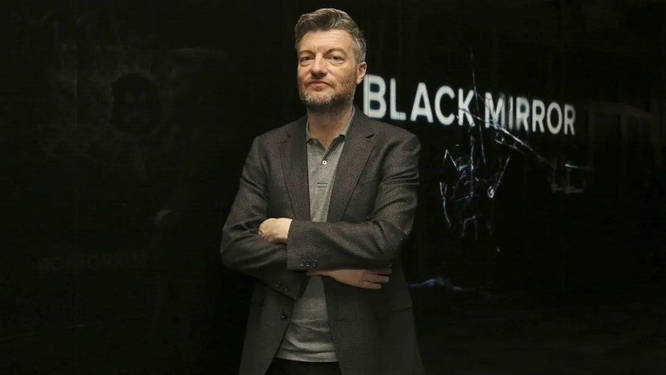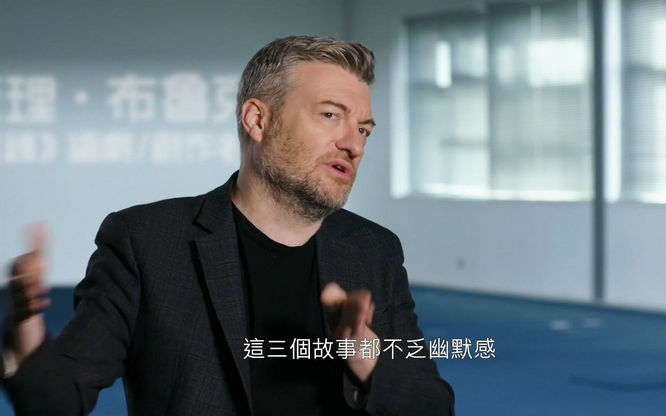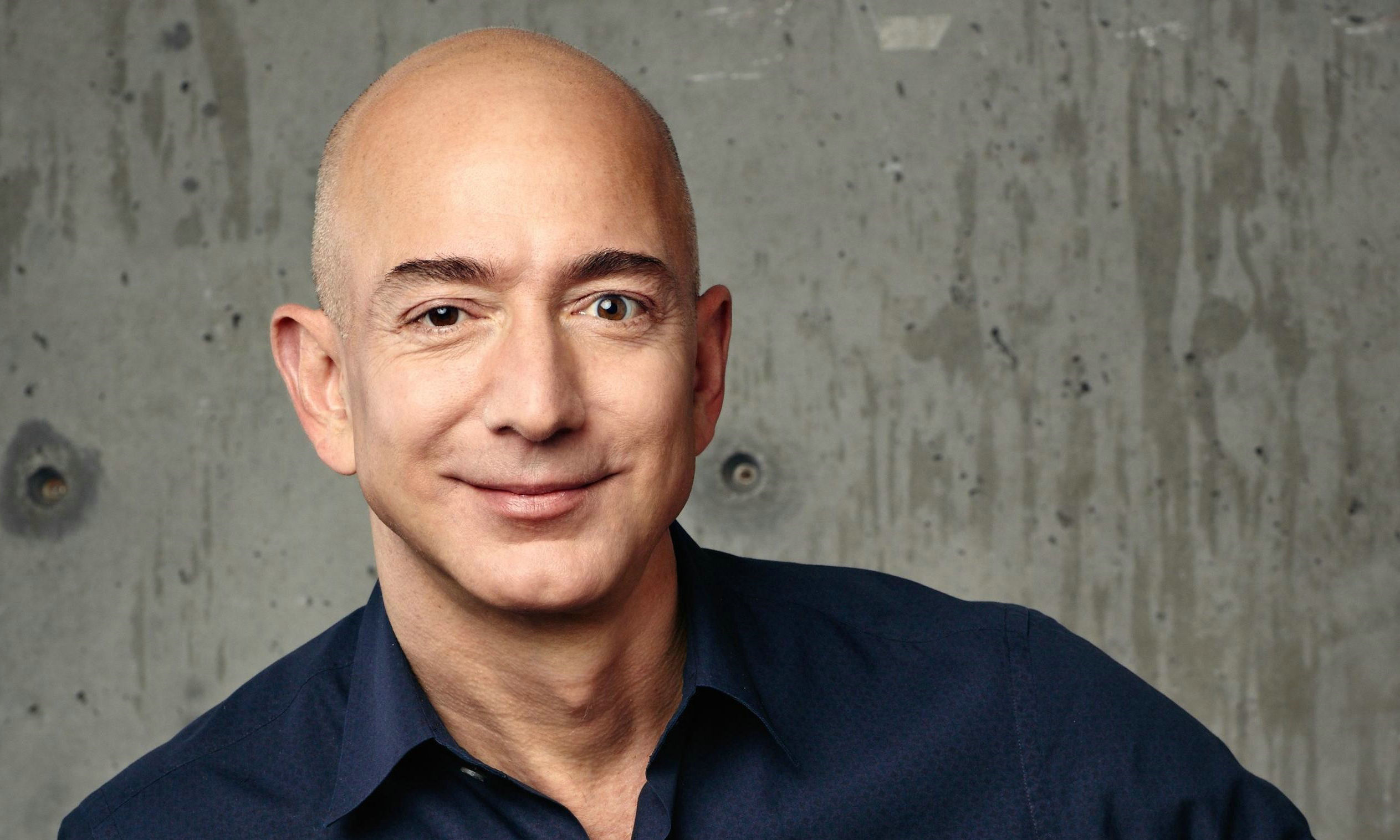In an era of information overload, where television screens glitter with glossy entertainment, British television producer, writer, and journalist Charlie Brooker has chosen a less-traveled path – employing satire and dark humor to expose the sinister aspects of technology and human nature. His works, particularly the series "Black Mirror," have not only sparked global, phenomenon-level discourse but have also been hailed as "modern tech parables," offering us glimpses into potential ethical dilemmas lurking within technological advancements, all amidst chills and reflection.

"Black Mirror" Season One: Brooker's Technological Warning and Deep Dive into Humanity
As technology increasingly intertwines with our lives, Brooker charts a path to the future through "Black Mirror," especially its haunting first season, which lays out a trail dotted with mirrors reflecting the myriad facets of humanity under technology's influence. Since its debut in 2011, "Black Mirror" Season One, with its unique perspectives and profound symbolism, swiftly became a cultural sensation, garnering accolades including Emmy Awards and sparking worldwide debates on tech ethics, societal shifts, and the essence of humanity.
"We shape our tools, and thereafter our tools shape us." This oft-quoted phrase by Brooker encapsulates the central theme of the "Black Mirror" series. Comprising three standalone futuristic fables in its inaugural season, each episode employs ingeniously creative storytelling to draw viewers into unsettling yet irresistible parallel worlds.
Case Study: "The National Anthem" – An Extreme Experiment on Public Opinion
"The National Anthem," the opening episode, shocks viewers' moral compass with the absurd scenario of a prime minister coerced into a sexual act with a pig to free a hostage. This seemingly preposterous premise profoundly uncovers the power of public opinion in the social media age and the manipulation prowess of the media. Twitter analytics reported a 1500% surge in mentions of "#BlackMirror" within 24 hours of the episode’s airing, underscoring its profound impact on public consciousness.

Post-release, "Black Mirror" Season One rapidly ascended IMDb's high-score rankings, averaging an impressive 8.9/10, and achieved a 95% freshness rating on Rotten Tomatoes. These figures attest to the resonance and introspection prompted by Brooker's inquiries among audiences worldwide. Notably, "Fifteen Million Merits" constructs a society where individuals must labor physically to earn merits for respite or a chance at a different life, thereby critiquing consumerism and the entertainment-driven culture, provoking in-depth discussions on free will and social stratification.
Delving Deeper, Unearthing the Depths of Humanity
"What we fear is not technology itself, but what it reveals about the darkness within us," Brooker once remarked in an interview. "The Entire History of You" explores the delicate balance between privacy and intimacy through the lens of memory-recording technology that dismantles trust between a couple. This episode not only highlights the invasion of personal privacy by technology but also touches upon humanity's profound anxiety surrounding the intricate dance between truth and lies.
"Black Mirror" Season Two: Charlie Brooker's Deepening Expedition Through the Tech-Human Maze
Following the resounding global success of "Black Mirror" Season One, Charlie Brooker refused to rest on his laurels. Instead, he sharpened his pen and widened his gaze, unleashing Season Two – a continuation of his exploration into the labyrinthine entanglement of technology and humanity. This season, Brooker expanded narrative horizons while plumbing deeper into the potential impacts of technological progress on individual psyche, societal frameworks, and even the shapes of civilizations. Each episode served as a crucible of ideas, a probing of the soul.
"Technology is neither devil nor angel; it's an amplifier, magnifying both our best and worst traits." Brooker's words echo as a prologue to Season Two, signaling an entry into a more intricately woven, cautionary, and reflective vision of the future.
Spotlight Case: "Be Right Back" – The Frontier Between Love and AI
The episode "Be Right Back," which tells the story of resurrecting a deceased lover through AI technology, delicately examines the essence of love and the frailty of memory. It sparked widespread emotional resonance upon release and ignited weeks-long discussions on Reddit, with participation increasing by 400%, showcasing Brooker's incisive insight into technology's intrusion into interpersonal relationships. This wasn't just a discourse on tech ethics but a profound query into the authenticity of human emotion.

"Black Mirror" Season Two continued to shine brightly across rating platforms, boasting an impressive average of 8.7/10 on IMDb and a Metacritic score of 86, attesting to its dual triumphs in artistry and intellectual provocation. Specifically, the episode "White Bear" utilized a relentless, cruel loop to expose public indifference and online violence, resulting in a 200% surge in web searches related to the depicted social issues post-episode, highlighting the show's potency in catalyzing societal discourse.
Unpacking Layers, Revealing Depth
"Are we building the future we truly desire?" Brooker persistently posed this question throughout Season Two. In "The Waldo Moment," through the collaboration of a political puppet and a smart animated bear in a campaign, he bitingly satirized contemporary political propaganda and media manipulation, unmasking the hypocrisy and manipulation embedded in democratic elections. Applauded for its accurate portrayal of the political ecosystem, the episode further ignited profound reflections on technology's influence over democratic systems.
"Black Mirror" Season Three: Charlie Brooker's Global Perspective Unfolds a New Chapter in Tech and Humanity
With the worldwide release of "Black Mirror" Season Three on Netflix, Charlie Brooker transcends national borders, bringing his unique brand of dark humor and futuristic prognostications to the international stage. This season broadens its narrative scope and delves deeper into the universally relevant relationship between technology and humanity, with each episode functioning as a prism that refracts the era's most profound anxieties and aspirations.
"It's not the technology that's the problem—it's us." Brooker's axiom sets the tone for Season Three. Here, he not only prolongs his critique of technology's adverse effects but also widens the focus to encompass global, human-centric issues within the context of globalization, exploring how we define ourselves, connect with one another, and preserve the essence of humanity amidst rapid tech evolution.

Spotlight Case: "San Junipero" – The Eternal Inquiry of Virtuality Versus Reality
As the season opener, "San Junipero" constructs a simultaneously alluring and melancholic digital paradise. Two protagonists search for love and freedom within an infinite digital loop, while audiences are immersed in a philosophical dialogue about the meaning of life, memory, and escapism. Post-release, Google searches related to "digital immortality" and "virtual reality ethics" surged by 200%, highlighting how Brooker's exploration of cutting-edge ethical concerns struck a chord globally.
Upon its Netflix debut, "Black Mirror" Season Three rapidly rose to international fame, with a 40% increase in viewership during the opening weekend compared to Season Two, and sparking over a million discussions on social media. Specifically, "Shut Up and Dance," through a chilling tale of privacy invasion and social media manipulation, ignited a global conversation on personal privacy protection and cyberbullying, with tweet volumes surging by 300%, affirming the show's profound impact on societal matters.
Deep Dives and Nuanced Insights
Each episode of Season Three meticulously excavates a particular aspect of contemporary society. For example, "Men Against Fire" uses a comedic yet tragic narrative to probe gender dynamics and the commodification of sexuality, posing profound questions about human nature. Conversely, "Playtest" embroils viewers in an adventure that blurs the lines between consciousness, gaming, and reality, prompting philosophical ponderings on the limits of technological progress and human consciousness.
"Black Mirror" from Season Four Onwards: Charlie Brooker’s Sci-Fi Frontier and Intense Exploration of Humanity
Starting with Season Four, Brooker's sci-fi anthology escalates, achieving visual leaps and bounds alongside enhanced narrative depth and philosophical inquiry. These iterations gain higher ratings and acclaim globally, functioning as a surgical blade that exposes the hidden societal and human issues beneath the sheen of technological prosperity.

Brooker's assertion that "technology is an extension of humanity, yet also amplifies our fears and desires" guides the later seasons. This period's narratives go beyond warning against tech's negative impacts, delving into the intricate interplay between technology, human emotions, ethics, and even modes of existence, painting a nuanced tapestry of complex futures.
Case in Focus: "USS Callister" – A Cosmic Arena of Power and Revenge
Kicking off Season Four, "USS Callister" stages a power play within a virtual cosmos, mirroring distortions of real-world power abuses, workplace bullying, and vindictive impulses. The episode garnered multiple Emmy nominations and ignited fervent debates on online responsibility and the ethical boundaries of virtual reality on social media, with a 500% increase in Twitter mentions within a week, demonstrating the show's potency in catalyzing societal discourse.
According to Netflix, global viewership for Seasons Four onwards significantly rose, with episodes averaging a 4.8/5 rating. Episodes like "Metalhead" and "Black Museum," which delve into AI ethics and privacy violations, became social media sensations. These figures not only attest to the series' popularity but also reflect the depth and profound influence it exerts on its audience.
Uncovering Depth, Revealing Complexity
"Black Mirror's" profundity lies in provoking viewers to contemplate solutions, not just presenting problems. "Hang the DJ" uses an apparently light-hearted dating algorithm to explore the essence of choice and free will, while "Arkangel" examines the implications of excessive monitoring on child development, triggering profound reflections on parenting and technological ethics. These narratives are both shocking and reflective, serving as mirrors that prompt self-examination as viewers engage with them.
Charlie Brooker, the prophet weaving dystopian nightmares with sardonic wit, sketches images that are as haunting as they are thought-provoking. Through his work, we witness not just technology's dual-edged sword but also the dichotomy of humanity's brilliance and darkness. Amidst the digital tide, Brooker's caution acts as a clarion call, urging vigilance, bravery to confront, and contemplation of the future we forge. In this capacity, he is not just an entertainment creator but a vital thinker for our times.
